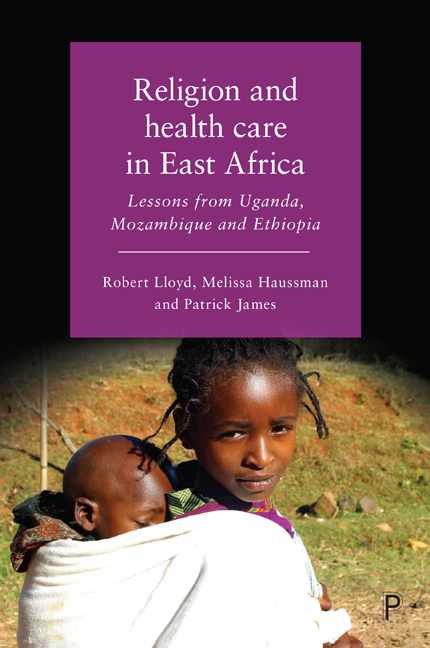1 - Religion, health care, and Africa
Published online by Cambridge University Press: 27 April 2022
Summary
Overview
Few studies focus on the influence of religion or a religious world view with regard to health care in Africa. An impressive policy review on health care in Africa by Cooke (2009), for example, acknowledges the importance of religion but does not go beyond that point in exploring the connection. A recent and valuable study of health-care policy in Africa acknowledged the importance of spirituality, but its agenda on state and society only touched upon religious institutions (Gros 2016: 179). The intersection point of religion, health care, and Africa emerges as a principal item for the research agenda on well-being.
Among other aspects of this book, the primary argument is that religious beliefs (including, by extension, the beliefs of those who do not necessarily profess religious beliefs) are central to an integrated world view. This world view shapes Africans’ understanding of the world and how best to respond to its complexity. Health care is an essential aspect of an individual's physical, emotional, and psychological well-being. The study examines the relationship of the physical and spiritual domains by examining how religious belief affects the provision and consumption of public health.
States sometimes cannot fulfill their social contract to citizens. Thus, dysfunctional states create an opening for religion to impact significantly on both the provision and consumption of health care in Africa. Government corruption and incompetence vary throughout the continent, but it is fair to say that no regime in Africa is free from the side effects, which include seeking public services from the private sector. This is one underlying explanation for why traditional healers, along with Faith-Inspired Institutions that provide modern medicine, turn out to be so important in the pages of this book. The other foundational reason is the importance to Africans, in seeking health care and other services, of meeting needs in a way that is in line with their religious faith. Many Africans pursue health in a holistic way—spiritual and physical needs are regarded as connected to each other.
Among Africans, the role of religion is significant across the board. The impact of religion on politics and policy in Africa is well established (Meier and Steinforth 2014). Faith-based medicine is long-standing. Some time ago, Mbiti (1969: 166, 170–171) identified traditional medicine with herbalism and, although allowing for exceptions, cast it in a generally positive light.
- Type
- Chapter
- Information
- Religion and Health Care in East AfricaLessons from Uganda, Mozambique and Ethiopia, pp. 1 - 24Publisher: Bristol University PressPrint publication year: 2019

